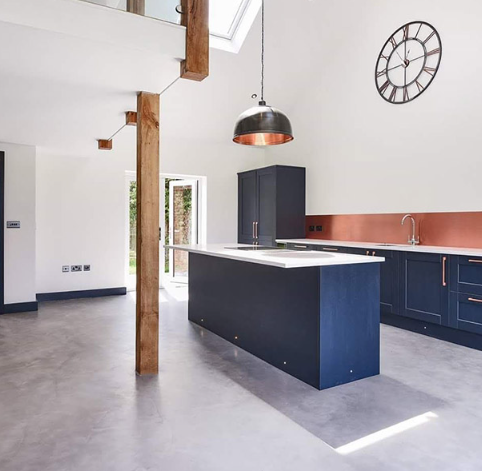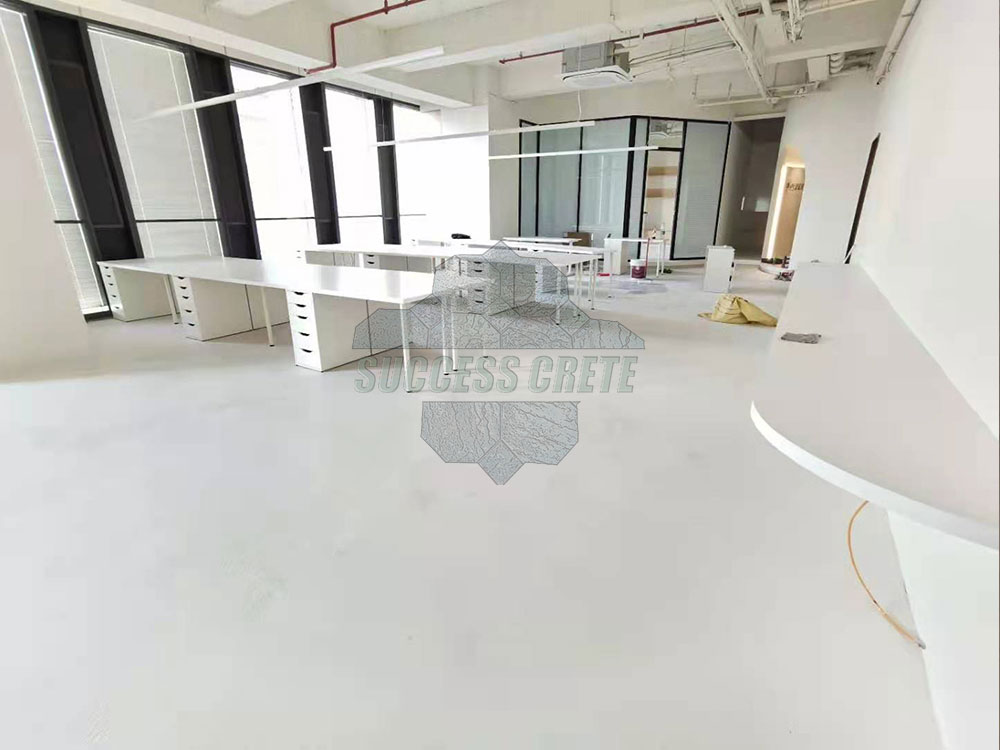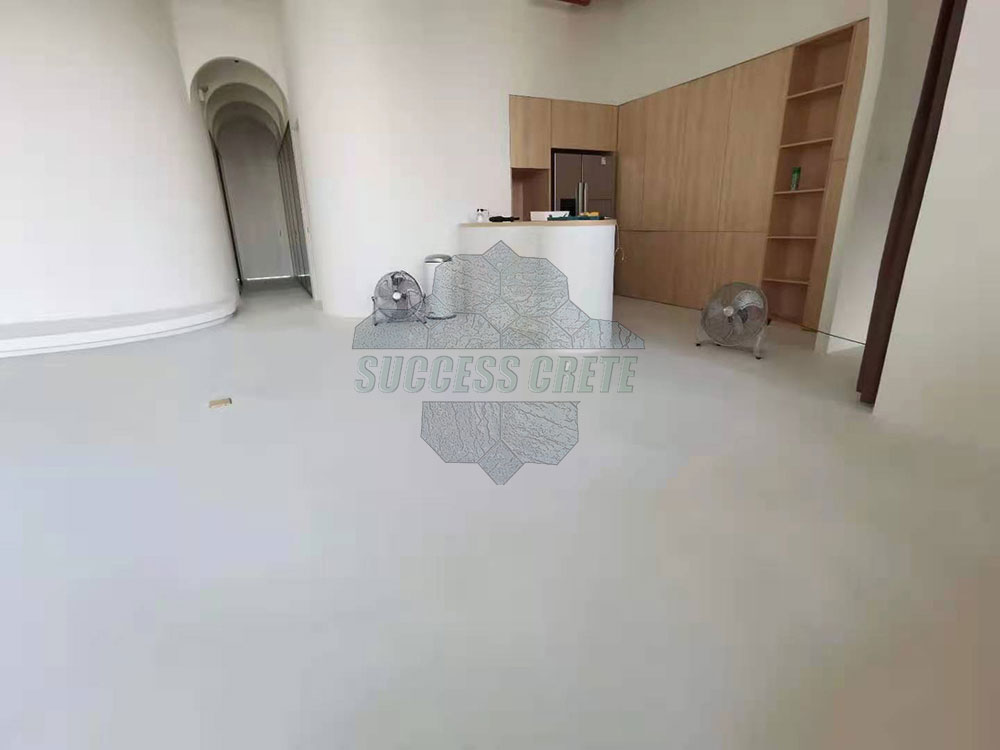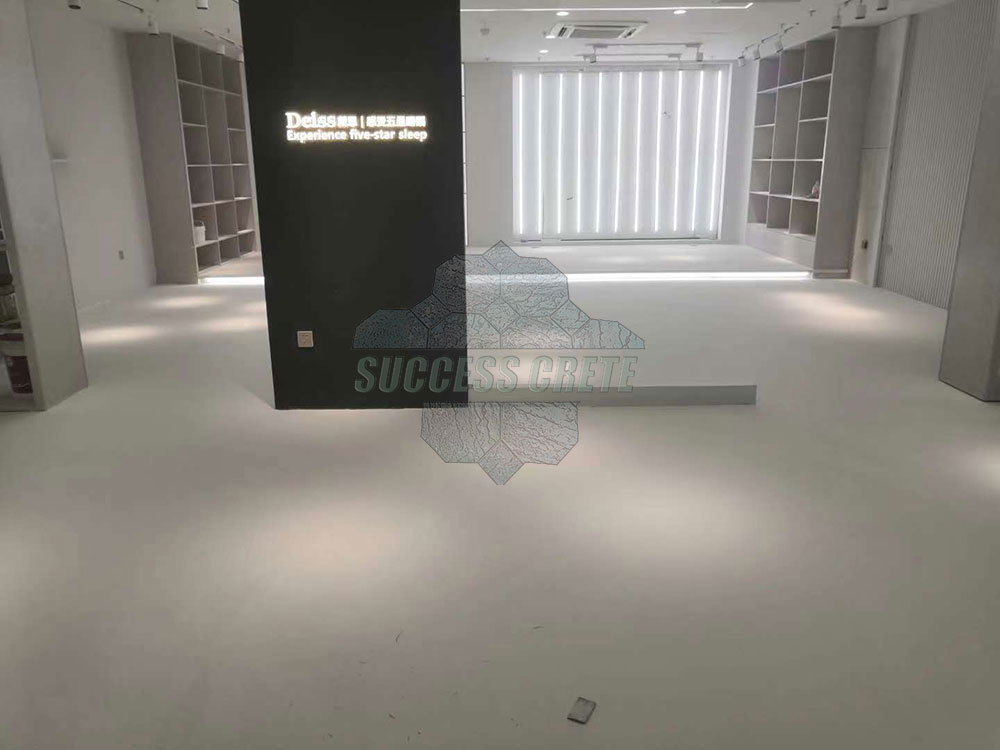Introduction
Bring your concrete floors back to life! With Self Leveling Concrete installers, you can easily restore the beauty of any damaged slab – no costly replacement needed.
Perfect for homes and businesses alike, get ready to give those old concrete surfaces a new lease on life.
Transform your home or commercial building with Successcrete! Our experienced Self Leveling Concrete installers are ready to take on any job, no matter the size.
With a variety of Self Leveling Concrete and micro-pour systems, we can create stunning curb appeal that will add both beauty and value to your property.
We have all the necessary tools—our expertise included—for reshaping concrete surfaces into something truly unique; let us reveal its full potential!
Owning your own flooring project has never been easier!
The latest trend for general contractors, designers, and owners is to pour Self Leveling Concrete– it’s a simple way to save time and money while ensuring high-quality results.
No need for labor costs or long installations.
Self-leveling compound installers are one of the most popular types of flooring these days and can be found in many commercial and industrial sites.
It’s not only attractive, but it’s also durable, heat resistant, and easy to maintain which makes it a great option for busy business owners.
But without professional help installing self-leveling concrete can be tricky.
By having professionals who are knowledgeable about setting up the installation from beginning to end you will take out any unnecessary stress from the process while still achieving amazing results.
Let us walk you through how to install your Self Leveling Concrete installers!

The blog will include the following content:
- Why Pour Your Own Floor?
- What Is Self-Leveling Concrete?
- Process of Self Leveling Concrete installers
- When using/not using Self-Leveling Concrete?
- Benefits of self leveling concrete
Why Pour Your Own Floor-Self Leveling Concrete installers
If you’re looking for an affordable and reliable way to freshen up your business space, pouring your own floor is the perfect solution!
Not only does this type of project cost significantly less than hiring a professional contractor, but it also takes much less time to complete—meaning that you’ll be able to enjoy your spruced-up space in much shorter order.
In addition, pouring a durable concrete floor yourself offers more flexibility when it comes to design options; from color customization to unique shapes and textures, achieving exactly the look you want is within easy reach.
Take control of your workspace’s aesthetic today by learning how to pour your own floors!
When it comes to flooring, DIY is definitely an option with self-leveling concrete. Not only does it make for a highly durable surface, but it also saves you money since you don’t need to hire installers.
Plus, there’s nothing quite like getting your hands dirty and taking on the challenge of installing your own floors.
The application process is fairly simple – simply mix the self-leveling concrete with water in the ratio ordered and apply the mixture to your flooring.
Through its own volition, the mixture will seek out low spots and level itself across the surface.
With little effort and up-front costs, you can end up with new floors that friends and family alike won’t be able to take their eyes off of!

What Is Self-Leveling Concrete?
Self-leveling concrete has polymer-modified cement that has high flow characteristics and, in contrast to traditional concrete, does not require the addition of excessive amounts of water for placement.
Self-leveling concrete is typically used to create a flat and smooth surface with a compressive strength similar to or higher than that of traditional concrete prior to installing interior floor coverings.
Self-leveling concrete has increased in popularity as the degree of flatness and smoothness required for floor covering products has increased, with vinyl goods becoming thinner and floor tiles becoming larger, for example.
History
Self-leveling concrete was invented in 1952 by Axel Karlsson from Sweden.
The first product was a combination of wood glue, fine sand, and cement with additives. It was called flytspackel, which directly translates to “floating putty”.
The term self-leveling can be traced back to a patent applied by the company Lafarge in 1997. The term is used to differentiate it from traditional concrete, which is typically stiffer and requires more labor to get into place and finish with a trowel.
Need a floor repair solution that’s fast and cost-effective?
Look no further than self-leveling concrete! This mixture of cement is like regular concrete, but with added flowability which lets it spread out by itself so you don’t have to worry about any manual leveling.
It’s made of a cementitious mixture similar to regular concrete but flows better and sets faster – just mix with water, spread evenly using a gauge rake as soon as poured onto the ground then sit back while its magic takes place!
You can be ready for use in no time -whether that be carpet installation or tiling depending on what type of product you choose – within 1-2 hours for light smoothing results with up 6 hrs before it fully hardens.
In short, applying self-leveling to vertical surfaces is not recommended, as it’s akin to a slip and slide trying to keep intact.
But on the other hand, with its easy application method; floor levelers can be used for interior floors in warehouses, schools, or any commercial applications – making your project smooth.
In addition, floor leveling pads may be thin, but with the right equipment, you can guarantee a smooth and professional finish.
However, they’re not suitable for industrial settings where heavy items are being moved around – dragging pallets or machinery across them could easily cause damage.

Process of Self-Leveling Concrete installers
Whether you’re a business owner in charge of building flooring from the ground up or just need to replaster and level out areas of an existing structure, knowing the complete process for investing in quality self-leveling concrete installers is essential.
But what exactly does this specialized type of concrete offer to property owners?
How do you know if it’s right for your next project?
Find all these answers here as we dive into how professional contractors go about installing self-leveling concrete: its benefits, preparation needed, tips & tricks to get great results – along with FAQs that are sure to be helpful on your journey!

Step 1 – Preparation is key!
A thoroughly clean and grind. This way we can be sure there’s nothing getting in the way between our new surface dressing and its perfect bond with whatever it’s being applied to. Getting rid of deteriorated parts, along with dirt, grease, or oil.
Step 2- Application of Resin Primer!
Our professionals make sure that everything is up to scratch using the best products on the market.
They combine a two-part system of epoxy resin base and hardener, mixing it together before applying as per specification for extra strength in our self-leveling concrete finish!
On-site, self Leveling Concrete installers mix this two-part epoxy and apply it according to the manufacturer’s specifications.
Step 3- Time to make it even.
After the perfect primer job, our experienced pros mix up that self-leveling overlay and pour away!
With careful consideration given for all parameters like thickness or depth of any potential holes/pits – we roll out a smooth finish with precise uniformity using only the best-pointed roller on the market.
Allowing us to follow the manufacturer’s steps closely so your concrete surface treatment product is ready for foot & vehicular traffic in no time at all!

Self Leveling Concrete installers
8 tips for a better concrete installation:
-Safety first! Take the time to read through those comprehensive instructions from your manufacturer. Don’t take any shortcuts – trust them, they know best! And if anything seems off with their steps and yours? Stick to what they say!
-Stock up! Make sure you have more products than you need for your project! Just a slight difference in thickness can add up to multiple bags of material. So be prepared with the perfect amount from the get-go.
-Get your gear in order and make those 10-20 minutes count! Your time is limited, so make sure you’re all set with your supplies beforehand.
-To keep your straightener in its best shape, make sure it’s dry and safe – store bags indoors to avoid humidity or any moisture on the floor.
-Our products don’t like too much heat or cold when mixing- it’s best to keep them away from extreme temperatures.
-Don’t get tempted to add water when using this product – the mixing ratio is essential.
-Make sure to tidy up once you’re done with your tools and buckets – because if that gunk has time to settle, it ain’t budging.
-When you pour out your product, go slowly and carefully to ensure that it stays within its limits. Otherwise, if too much comes out all at once – scoop up the extra with haste before it goes in!
Transform your floors with self-leveling cement! Create an entirely new look in any room – from tile to carpet and even worn surfaces – without having to completely replace the floor.
It comes in a multitude of forms: matting that seals and coats, light grey or white ready for stains and dyes; overlay mixtures that polish direct onto the surface – so whatever design you’re looking for there is something out there perfect to match it.

When Using Self-Leveling Concrete?
Self Leveling Concrete is a great choice when it comes to floor installations, as it’s designed to self-level and create an even surface.
As challenging as it may seem, professional installers make the process fast and of superior quality. Self Leveling concrete is ideal in places where there are uneven areas, such as outdoor walkways or driveways, pool decks, basements, or interior floors.
It’s a great option to help level cracked and damaged areas quickly and cheaply.
Create an extra smooth foundation for your tiling projects with the help of self-leveling concrete!
Forget about manually stirring every bag, as this special cement is designed to do all the hard work itself – just make sure you’re at least 0”-4” off ground level.
However, for that thickness, you will need to use automated equipment.
With minimal height variation and added compressive strength, leveling is a great way to get the perfect foundation for installing engineered wood, laminate, or epoxy moisture-resistant flooring.
Our experts are using concrete pumps to get the job done quickly and accurately!
These modern marvels not only mix materials but also precisely control how much water is added, allowing for a perfect finish in various flooring applications like radiant heating floors or laminate linings.
When the self-leveling concrete should not be used?
Self-leveling concrete is perfect for interior areas, giving you a sleek and contemporary finish.
Outdoors can be applied in some cases – such as covered garage floors, but most 100% outdoor applications are not suitable for self-leveling concrete.
Don’t bother trying to use self-leveling concrete on any vertical surfaces. This special mix of polymer and slurry won’t stick long term, so only lay it over flat surfaces for the best results.
Self-leveling concrete may offer your floors a glossy finish, but don’t be fooled by its good looks – it’s not as hardy when harsh chemicals or heavy machinery come into play.
Stick to traditional concrete if you’re looking for maximum strength and durability.
Benefits of self-leveling concrete installers
Self-leveling compound installers can be a great way to get the most out of your flooring.
Self-leveling concrete is an attractive, durable, and low-maintenance option that offers a long list of benefits that make it well worth considering.
The benefits of self leveling concrete are numerous – fewer trowels required, and the ability to quickly level uneven surfaces, and repair cracks.
And excellent adhesion and water resistance.
Faster drying and less curing time.
Better structural integrity to resist tension or compressive stresses – making Self Leveling Concrete installers increasingly popular.
Conclusion
Now that you know the benefits of self-leveling concrete, as well as the process installation teams, use to lay it down, you might be considering taking on this project yourself.
If so, reach out to our team at successcrete. We specialize in helping people just like you take on projects big and small.
With over 20 years of experience in poured flooring, we’re confident we can help make your vision for a perfect home come true.
Contact us today for a free consultation!







